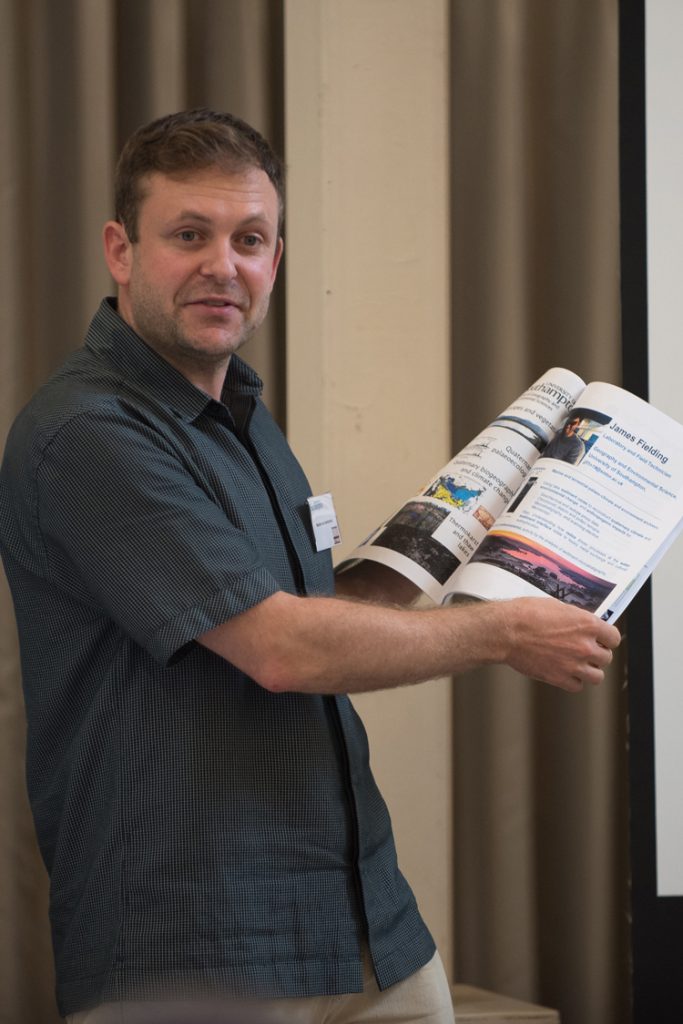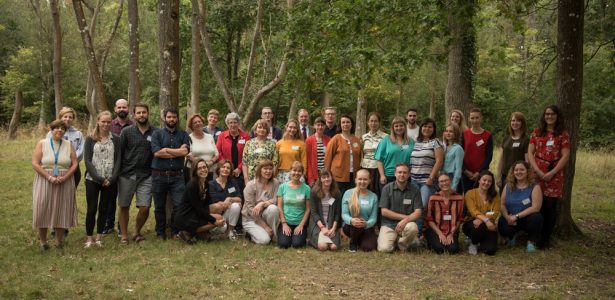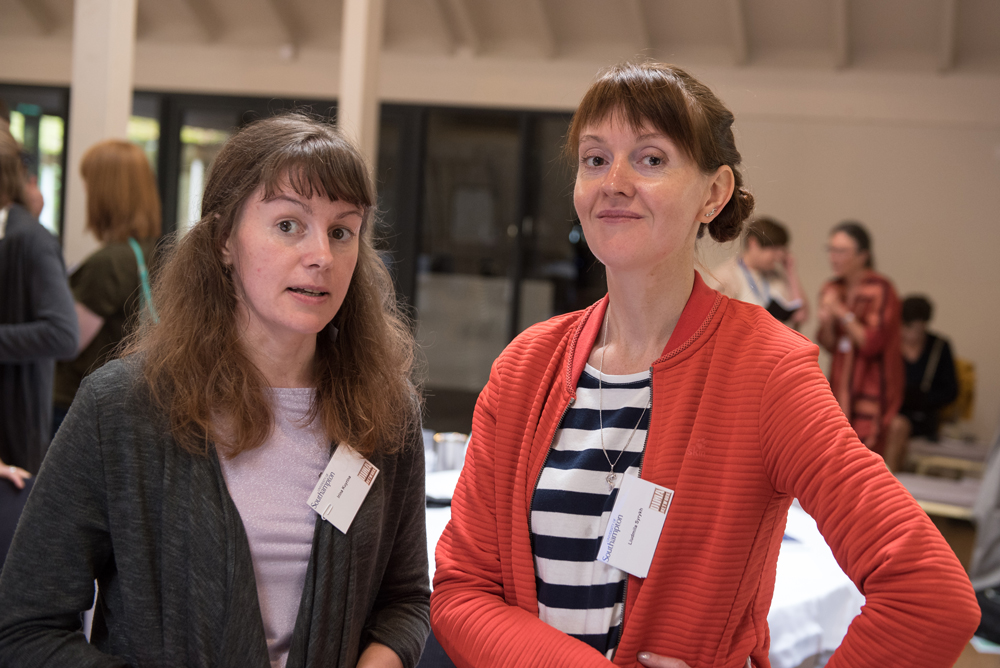In September, 17 Russian scientists travelled to Southampton to join UK scientists in a workshop on studying long-term environmental change in Siberia and the Russian Far East. This large northern land mass is warming fast, and its responses to warming are of interest to both the scientific community and national governments. Recent changes are already observed in vegetation growth and permafrost status, and there may also be effects on fire regimes; all these in turn will affect local conditions and the global carbon balance. Yet few data on either recent or longer-term change are available from this huge region.
The workshop was the third to be held by the DIMA group, a consortium of UK and Russian scientists led by Mary Edwards (Southampton) and Maarten van Hardenbroek (Newcastle). The overall goal of DIMA is to further understanding of environmental change by fostering scientific collaboration, internationalization of research, and developing the next generation of environmental change researchers. This workshop, which was largely funded by a grant from the British Council, and also by the UK-FCO and NERC, had the aim of bringing together Russian and UK scientists and to initiate new scientific connections; there was a focus on early-career researchers from both countries.
 Jadu Dash gave a welcome address on behalf of SoGES in which he also discussed the scientific importance of the region and his own interests there; this was greatly appreciated by the audience. Henry Burgess (NERC) and Tatiana Iakovleva (FCO) informed the group about extant and planned UK-Russia linkages and funding options. Southampton staff, ECRs and PGR alumni made many contributions. Other contributions came from Russian colleagues and researchers from Cambridge, Newcastle, Sheffield, Manchester, Exeter, Portsmouth and Reading. We discussed how to develop critical palaeo-environmental records to understand long-term change and contribute to climate- and process-model evaluation, and we examined the potential for the integration of remote sensing into studies of recent, rapid change. We also ran training sessions for Russian ECRs during the week following the workshop.
Jadu Dash gave a welcome address on behalf of SoGES in which he also discussed the scientific importance of the region and his own interests there; this was greatly appreciated by the audience. Henry Burgess (NERC) and Tatiana Iakovleva (FCO) informed the group about extant and planned UK-Russia linkages and funding options. Southampton staff, ECRs and PGR alumni made many contributions. Other contributions came from Russian colleagues and researchers from Cambridge, Newcastle, Sheffield, Manchester, Exeter, Portsmouth and Reading. We discussed how to develop critical palaeo-environmental records to understand long-term change and contribute to climate- and process-model evaluation, and we examined the potential for the integration of remote sensing into studies of recent, rapid change. We also ran training sessions for Russian ECRs during the week following the workshop.
Outcomes included several new bilateral connections that will take advantage of available funding sources for small projects and a decision by the group on a topic for a future large grant proposal.
Participants enjoyed fantastic weather during their week’s stay and returned somewhat convinced that British weather is far better than they thought it was. They had an afternoon off to visit Winchester or Marwell Zoo, and they experienced a Croquet-Cricket garden party, during which a cold G&T proved to be an exciting discovery for quite a few Russian colleagues.
Thanks go to Charlotte Clarke, James Fielding and Roseanna Mayfield, who provided indispensable logistic support, Alvaro Castilla-Beltran and Thierry Fonville for giving fantastic training sessions for the ECRs, Tanya Nousinova for translation and Steph Baker for event management.





